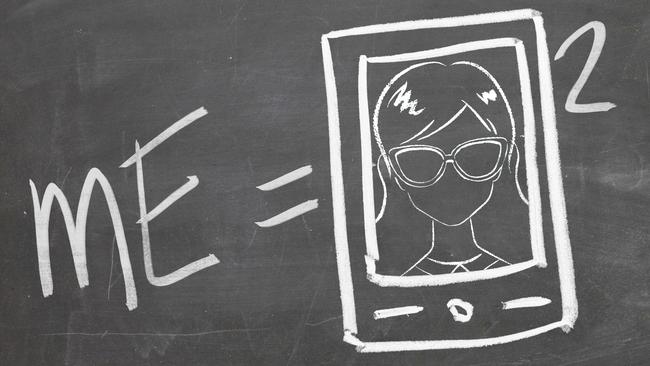Student: Phone ban out of touch with students and reality
The ban on students having phones in school defies logic, reality and the needs of so many students, writes Myrtleford P-12 College student Bri Hines.

Opinion
Don't miss out on the headlines from Opinion. Followed categories will be added to My News.
The Department of Education’s announcement of a policy banning mobile phones in schools — even outside class — surprised many people, to say the least.
I think it shows a total lack of understanding of the issues mobile phones in class present (and solve), the diversity of schools and students in the Victorian education system and especially the problem of cyber bullying the ban is supposed to address.
Given the narrow focus of the ban I find it obvious, and troubling, that this policy lacks meaningful input from current school students.
It is not enough to consult one or two cherry picked cases, especially as students today are the only demographic that has experienced the school system with such easy access to smartphones.

It is ridiculous to believe that anyone without first-hand knowledge of the experience is in a position to understand how such a blanket rule will impact all Victorian students and schools.
School, among other things, is supposed to prepare students for our adult lives.
The future might be uncertain — between the threat of climate change and all the uncertainty that comes with it — but one thing we do know about the future, among such unknowns, is the importance of technology.
I don’t see how schools can help us prepare for the technological future with restrictions like these in place.
We need to learn how to coexist with smartphones.
If we have to pretend they don’t exist for six hours a day, five days a week, I don’t think we can achieve that.
This policy shows a lack of adaptability and an aversion to progress, both in technology and society.
The policy announcement also shows a lack of trust in our schools and students, not to mention a lack of understanding of the broad diversity of those schools and students.
Yes, a mobile phone policy may work for some schools — but what about schools without reliable internet access or up to date technology?
Or schools that simply want the autonomy to set their own policies, taking into account input from their students?
As a student at a rural school, I often use my phone in place of faulty technology or Wi-Fi — if the department is going to ban phones it needs to directly address the inequity those of us in rural parts of the state face.
Smart phones are a readily accessible tool that allow students to take the initiative and work around the lack of resources in their schools.
To ban them outright directly disadvantages students at schools who use their phones to compensate for outdated school technology.
In doing so this policy says that the differences between schools — metro and rural, rich and poor — don’t matter.
The policy also ignores the diversity of students it will affect.
Students who may need their mobile phones — such as students with disabilities who might use their phones to communicate, or students who use apps to manage mental health conditions.
It’s easy to say those students can simply receive an exemption, but harder to see how that will work.
MORE: PRIVATE SCHOOLS BAN PHONES
MONASH STUDY: PARENTS BACK PHONE BAN
ADAM VOIGT: PHONE BAN WON’T WORK
It has the unsettling implication that students might have to argue their need is great enough to justify an exemption, not to mention being singled out as exceptions to the rule.
What will happen to students who feel unsafe at their school?
Students seeking information or reassurance online on sensitive issues like sexual or gender identity may feel particularly isolated by this policy.
Instead of trusting students, this policy threatens to leave many of them even more vulnerable.
All of this has been done in the name of preventing cyber bullying, which has become something of a straw man in this case.
It’s been cited as one of the key reasons for the ban, which has left many of us who are actually at school confused.
Instead of targeting the bullying that occurs at school in person, it has instead been decided that confiscating smart phones will combat the harassment so many students face.
That is like trying to put out a fire by confiscating candles.
Cyber bullying mostly doesn’t happen during school hours.
The implication that cyber bullying during school hours is the most common and important form of bullying to address is just another illustration that instead of deeply investigating the issue, the ban is a blanket solution.
On the Student Voice Hub, a national resource for student, 75 per cent of students said the mobile phone issue was more complicated than a ban would account for.
How will the Department of Education address bullying as a whole? How will it help to support students through difficult times?
Pretending the internet doesn’t exist from 9am to 3.30pm is not the answer; it suggests a lack of comprehension of the problem they’re trying to solve.
These school holidays students from across Victoria will come together for the annual Victorian Student Representative Council congress to meet and discuss the issues we currently face in the Victorian education system.
Without a doubt this issue will come up. Discussions have already begun. It will just be a matter of whether or not the government decides to listen to us.
Bri Hines is a Year 11 student at Myrtleford P-12 College and a member of the VicSRC Executive Committee.


